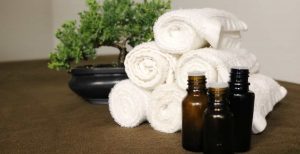Recently in an online group I came across a question about how do you deal with conflicting aromatherapy advice.
The question related to advice this person had read in a couple of books both written by very reputable individuals which seemed to be different from advice they had read elsewhere from another very well qualified person.
This got me thinking.
It is not uncommon to find differing opinions in the aromatherapy world. Indeed anyone who has spent time on social media or any online forum, will attest to this! Discussions can sometimes become, shall we say, “heated”!
This is not surprising when we observe that some of these individuals have vested interests, such as sellers of essential oils (who want to see their sales increase) recommending high levels of use of essential oils, clashing with aromatherapists who warn against these practices as they are the ones often seeing the fallout from excessive use and adverse reactions. Conflicting motivations, beliefs, background and training can create very different points of view.
But when you find two reputable, qualified individuals giving apparently conflicting aromatherapy advice, what then do you do?
For the novice this can seem like an insoluble problem. If the experts don’t agree, where do you turn?
For me, however, this question didn’t seem like a problem, but more of an illustration of how aromatherapy advice can change over time. There was in fact a very simple explanation of why the pieces of advice differed.
You see the books in question was published a few years ago. The conflicting advice had come to light more recently.
Aromatherapy advice is not set in stone. It evolves and changes as we learn more, both in what essential oils can do. But also where there may be new evidence of potential harm, and therefore new advice about how to stay safe.
Books, articles etc are a snapshot, if you like, of aromatherapy advice at the time they are written. But that does not mean they will be right forever. One of the reasons that authors rewrite or create new editions of books (in all fields) is to update the information in their book – an acknowledgement that things do change. We learn more. We experience more. New research comes to light. And therefore the information we seek to impart must change too.
This is not to say that you must throw out all your old books. God forbid! I still have the first books on aromatherapy I ever bought. I still refer to them as they contain information that is still correct, relevant and helpful. But I read them with an eye to more current information and take that into account also when deciding which bits of advice to continue to listen to. Indeed I love searching out and collecting older books too – BUT I apply the same principles when reading them.
The same applies to old journals. I have journals dating back to my earliest days as an aromatherapy student. They are in some cases still relevant, but in some cases they have become more of historical interest.
Even online, a medium that would seem to be up to date and current, content can still date and become redundant or even misleading over time. All forums, blogs, info pages, social media, still needs to be assessed against what most aromatherapy practitioners would call current best practice. That the usage still safe and effective given current knowledge.
So if you see a potential conflicting aromatherapy advice online or in books, articles etc, consider these factors when deciding who to believe
Who is the author?
What are their qualifications? Experience? Reputation in the aromatherapy community? Do they have the education and experience to know truly what is safe and effective and what is not? A qualification in one area of natural therapies, wellness or health does not necessarily qualify someone to know about essential oils. Look for aromatherapy-specific knowledge.
What is their agenda?
We all have one! Whether it is a passion for essential oils and their properties, a deep concern about essential oil safety or just a desire to make money by selling essential oils. Some agendas will be more altruistic than others, but there will always be a purpose. Make sure you consider what that might be.
When was the item written?
If comparing two pieces, when were their respective dates? And what may have happened or have been learned between the times they were written? What is right today may not be right in a year’s time. As we learn more, this may reinforce or disprove or make redundant, advice considered correct in the past. Even the same author may give advice in a book written today that is very different from what they may have written some years ago.
Is the point one where there may not be a single answer?
You may often see a range of essential oil concentrations, for example, even within one source. If one source says to use 5 drops in a diffuser and another says 6 to 8, and yet another says 4 to 6, that does not necessarily mean that one is wrong as a range of concentrations may be appropriate in this situation.
Are the pieces of advice directed to the same audience?
Recommendations for use on an adult will be different from those recommended for a child. Some practices may be fine for a professional but too high a risk for a beginner who may not be conscious of potential problems.
Are there any factors in your own situation which might make the advice apply or not apply to you?
Generally written advice is for an average healthy adult, and may not apply if you have allergies, sensitivities or health conditions considered by the writer – whoever they are! (This is where advice from a professional aromatherapist can be of enormous assistance in deciding which advice may be appropriate for you.)
In conclusion
In the end, conflicts do happen. But no one person had all the answers, all the time. Advice will of necessity change as we learn more. Instead of taking advice at face value or relying only on one source, think a little deeper and give advice some consideration before accepting it.
And consider also that if sources seem to be giving conflicting aromatherapy advice, there may be a very genuine and understandable reason why.




